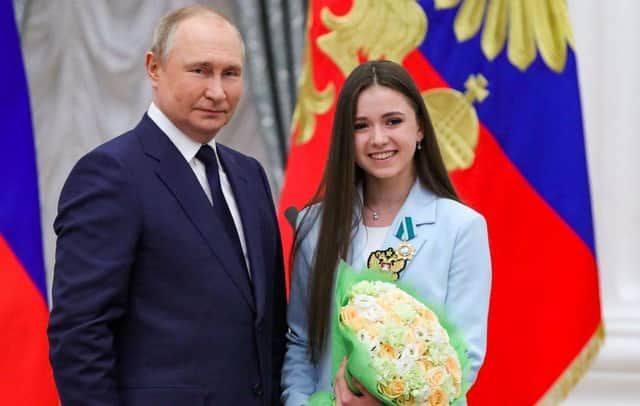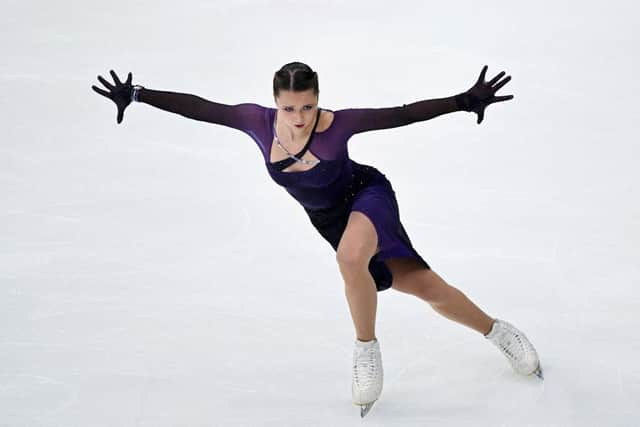Why Kamila Valieva’s doping allegation is the fault of the Russian figure skating system


There’s nothing that piques my interest more than a story that combines two of my favourite things: world news and figure skating.
The ongoing saga of Russian teen skating sensation Kamila Valieva, whose Olympic gold medal was suspended following doping allegations which came out 19 months ago during the winter games in Beijing, ticks all of the boxes.
Advertisement
Hide AdAdvertisement
Hide AdThis week, the Court of Arbitration for Sport has begun hearing the case against her. Three or four tightly closed hearings will be held this week, followed by months of deliberation.


Ms Valieva, who was 15 at the time of the allegations and was the first woman to complete a quadruple jump during the team event at the Olympics, has always protested her innocence. She claimed that she must have become contaminated with the banned substance after drinking from the same glass as her grandfather, who took medication for heart problems.
She had tested positive for trimetazidine, a drug used to prevent angina. The Olympic Committee allowed her to continue to take part, but said the medals for the team event, in which she had already competed, would not be allocated until the case was resolved, meaning no competitors in the event have yet been given their medal.
What we have to remember is not just that Ms Valieva was a child when she received her positive test, but that she was a child who had been brought up in the world of Russian figure skating.
Young Russian figure skaters live and breathe the sport from the moment they are identified – at five or six years of age – to be potential stars. They join specialist sports training schools with only the best of the best. Those from outside of major cities are often removed from their families and brought up in boarding houses, or in some cases, in their coaches’ homes.
Russian coaches are more than just skating teachers: they are ersatz parents; school teachers and mentors. Skaters have nowhere outside of the rink to turn to, to challenge the coaches’ advice. Their only friends are other skaters, who are facing the same challenges in the same environment. They are funded heavily by the state, but for that, there is an unspoken rule: compliance. They must train as long and as hard as their coaches demand. They must eat what they tell them; many skaters have reported being forced to train through injuries.
Ms Valieva trained at the figure skating school run by the notorious Eteri Tutberidze - Sambo 70 in Moscow. The coach has insisted all of her skaters are clean. However, she has also come under fire for her treatment of her athletes. At the womens’ Olympic free skate, following the news of Ms Valieva's failed test, she was seen to be berating the skater for mistakes which cost her a place on the podium.
Media focus will no doubt return to Ms Valieva as details of the hearing emerge in the coming weeks.
Advertisement
Hide AdAdvertisement
Hide AdIf she should compete internationally again is a decision for CAS. The American athletes currently unsure whether they won a gold or silver at the most important sporting event of their careers understandably want the decision to be made as quickly as possible. One skater warned that he and his teammates “will never get back the chance to stand before the world” to be awarded their medals, and claimed the system has failed them.
But we need to be careful, whatever the outcome, not to allow too much public blame to be directed towards Ms Valieva herself. She is as much a victim of the system as they are.
Comments
Want to join the conversation? Please or to comment on this article.
